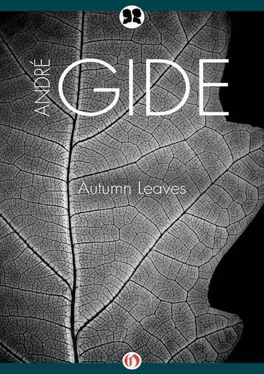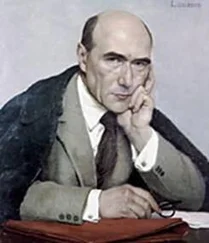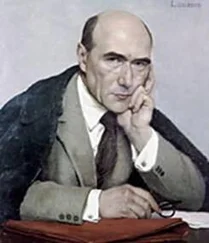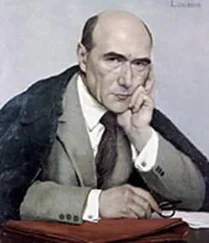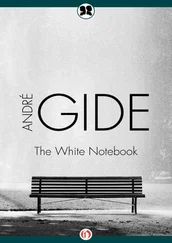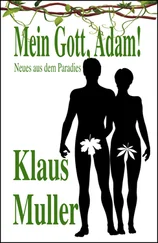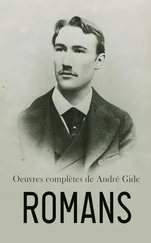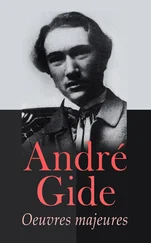If the harsh chastity of Nietzsche drives further a boldness more constant and not less noble, I admire and love in Goethe, companion of his strength, that loving tenderness that causes him to make Prometheus bend over Pandora:
And thou, Pandora,
Holy receptacle of all the gifts
That dispense joy
Under the distant sky
Upon an immense earth;
Everything that causes my being to exult,
That which, in the coolness of the shade,
Showers me with comfort,
And the spring-time joy of the friendly sun
And the warm waves of the Ocean,
If their tenderness has ever caressed my breast
And all that whose pure celestial glow
Has delighted my soul with repose.…
All that, all … My Pandora! 1
Even the universality of Goethe and the equilibrium in which he maintains his faculties, are not unaccompanied by a sort of moderation and temperance. Or rather; only moderation permits this happy equilibrium, against which Nietzsche soon sets his face. Dionysus triumphs here. Goethe is a little suspicious of intoxication and prefers to let Apollo dominate. His work, impregnated with rays, has none of those mysterious retreats in which to shelter his supreme agony and his gloom. He can shed gentle tears; he is never heard to sob. Nietzsche will require more of man, it is true; but the example of this thunder-struck Titan, of this Prometheus without Pandora, that indeed is our own fragility which he is recalling. To his anxious question: “What can a man do?” no one has responded better than Goethe.

1March 1, 1932.
1In whatever direction man goes and whatever he undertakes, he will always come back to the road that Nature has traced for him in advance.
1 French Countrysides. (Munster: December 1792). And further on: “The farewell formula of pious and kindly Catholics was not unknown or unpleasant to me; it had often been used with me by passing acquaintances, and often, too, by priests, my friends, and I don’t know why I should feel ill-will toward everyone who wishes to draw me into his sphere, the only one where, according to his conviction, one can live and die in peace, in the hope of eternal felicity.” (Ibid; end of the paragraph).
1To my great surprise, I met, in Germany, eminent and very cultivated men of letters, who had no knowledge or memory of that work and even denied its existence; that is the reason I am quoting at some length. It is to this Prometheus and not to the well-known Pandora that Goethe alludes in the fifteenth book of Dichtung und Wahrheit.
1Und du, Pandora
Heiliges Gefäss der Gaben alle
Die ergötzlich sind
Unter dem weiten Himmel,
Auf der unendlichen Erde,
Alles, was mich je erquickt von Wonnegefühl,
Was in der Schattens Kühle
Mir Labsal ergossen,
Der Sonne Liebe jemals Frühlingswonne,
Des Meeres Laue Welle
Jemals Zärtlichkeit an meinen Busen angeschmiegt,
Und was ich je für reinen Himmelsglanz
Und Seelenruhgenuss geschmeckt …
Das all all … Meine Pandora!
18 THE TEACHING OF POUSSIN
There, all is nought but order and beauty .
BAUDELAIRE.
WHAT has been called “The Criticism of Art” is, of all the literary types, the most dangerous, and rare are the men of letters who can succeed in it, risking themselves in a terrain that is not, strictly speaking, their own. If I dare do it to-day, it is without any presumption whatever and fully conscious of the danger. For, in spite of what is said of it by Félibien, the first of those art critics, who before the end of the seventeenth century wrote: “the light of reason is above what the workman’s hand can execute”—the qualifications of the trade remain of primordial importance, and the man of letters knows nothing about them.
However, of all those who “made a profession of mute things,” there is not one whose works, as much as those of Poussin, extend beyond the interest in painting alone and which, for their noteworthy success, have made appeal to qualities and virtues rising far above the exclusive merits of the brush.
During Poussin’s life as well as long afterwards in order to praise his canvasses, they pointed out (even men of his trade) only their intellectual merits, and discussed reasonably to their wits’ end the why and wherefore of those merits. Better advised to-day, perhaps, we know that those merits, however extraordinary they might be, would not have sufficed to assure Poussin a lasting reputation, to permit his canvasses to pass into distant times and to come down to us. In the great shipwreck of time, it is by their skin that masterpieces float. The same for literature. Without the inimitable beauty of his prose, who would still be interested in Bossuet?
I shall go further: intelligence even risked holding Poussin back, as often happens. Here the miracle is that Poussin was painter enough, was a great enough painter, so that the container, under the excessive weight of what it contained, did not go under; so that the idea triumphant could dominate the matter while glorifying it. And that is because, in him an idea immediately became an image, was born plastic, and that here the intention, emotion, form, craft, everything converged on and conspired for the work of art. With the result that what Barbey d’Auvevilly wrote of Baudelaire could be said of him: “Following that struggle with the angel, the artist was not too defeated.”
That Poussin is a painter, a great painter, a born painter, we would be sufficiently convinced by one of his mythological canvasses, not cluttered up with meaning, representing a naked nymph, or some sleeping Venus, and responding only to what Poussin proclaimed to be the aim of art: delight. But these canvasses in his first style, scattered over Europe, are relatively little known. Likewise, when it was granted us, at the time of a great exposition, to see in Paris a certain work of Poussin that had been lent to us: Tancrede and Hermione or The Inspiration of Anacr é on, it was a dazzling revelation for many of the French. What! Poussin capable of such discreet splendor, of that gleaming, blended enamel, of that sumptuous symphony? Who would have thought it after his classic and too sober masterpieces in the Louvre?
Now, having once tasted easily that jubilation, that sensorial rapture, we shall know how to find it again even in his last canvasses, however tempered they may be by the monotonous patina, and cooled off too, accustomed as we are to them. At any rate, of less flagrant sensuality, they require of us, to be affected and to affect us, a very vigilant attention, a prolonged contemplation.
Moreover, to persuade us, there is nothing better than those fragmentary, photographic representations — where, leaving behind the harmonious vision of the whole, we can evaluate in a leisurely way the sensibility of the touch, its firmness, its fullness; and it is with a sort of particular intoxication that we admire from then on the essentially pictorial qualities of the innovator, by which he overtakes certain of our boldest pioneers of to-day.
Let us get down to Poussin.
I don’t have to expound on his biography. I shall note only that he was about eighteen when he made his first fillip at the doctrine of Barrès, at the attachment to “the land of the dead.” As soon as he “thought he was in a position to leave his native region,” writes Félibien in 1685, “he left his father’s home (in Andelys) without making any stir, and came to Paris to learn more about an Art whose difficulties he already recognized, but which he loved passionately.” And a few years later, it is France itself that he leaves for Italy. During his first trip, his means and circumstances did not permit him to go further south than Florence. But the second time, making a greater leap, in the spring of 1624, he reached Rome, where he settled down and blossomed forth. Nevertheless, an especial appeal from Louis XIII recalled him to Paris where important charges were entrusted to him, accompanied by extraordinary advantages. “Now,” remarks Félibien, “whatever charms might have retained him in Italy, it would have been very awkward for him not to obey the orders his King deigned to give him” (in January 1639). Still he only answered him with very bad grace, procrastinating until the very end of 1640, until the extreme limit of propriety. Then, as soon as he could, breaking all his engagements, he settled again in Rome (in September 1642) which he never again left until his death (November 19, 1665). The scrupulous Paul Desjardins feels justified in writing: “There is not a trace in Nicolas Poussin’s letters of any obligation that he might have felt toward his parents. Never afterwards does he show any regret at being separated from them; transplanted voluntarily to Rome, he lost all desire to return, it could even be said all memory.” The first of our great painters, and the most French of our great painters was the type par excellence of the uprooted person. Others are almost as much so, and among them Claude Gelée from Lorraine; but no one more advisably than he. Yet it is the spirit and genius of France that can be felt breathing in his canvasses and that he illustrates in a different way, but just as much as Descartes 1(that other great up-rooted one) and Corneille 2, his contemporaries.
Читать дальше
